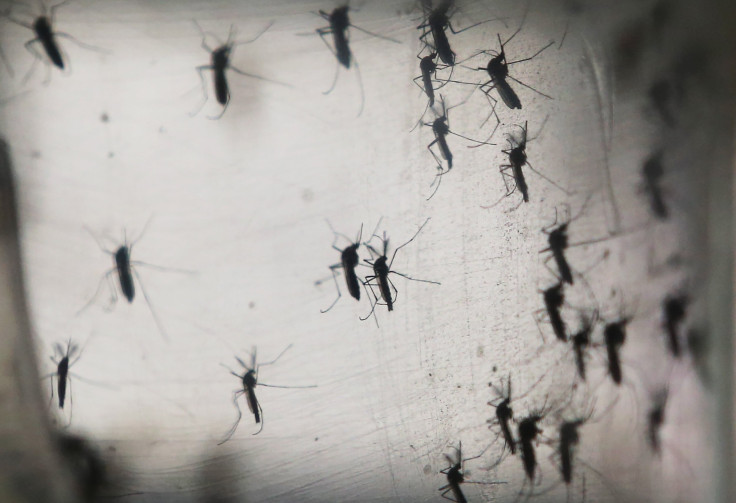Zika Virus Update: Brazil To Send 220,000 Soldiers Door-To-Door To Teach Mothers About Mosquitoes

Brazil will send about 220,000 soldiers house to house next month to fight the Zika virus, the mosquito-transmitted illness that threatens to spread across the Americas, in an attempt to stop the disease from affecting mothers and their infants. The troops are set to take to the streets Feb. 13 to distribute pamphlets about how people can avoid mosquito-friendly conditions and protect themselves from the Zika virus, BBC News reported Tuesday.
"The mosquito has been here in Brazil for three decades, and we are badly losing the battle against the mosquito," Health Minister Marcelo Castro told reporters, adding that the government would also give bug spray to about 400,000 pregnant residents.
The Zika virus outbreak started last May and has since spread to 21 countries and territories in the Americas, the World Health Organization said earlier this week. The disease has moved so quickly in part due to the location of the virus-carrying mosquito species Aedes aegypti and the fact that Zika previously hadn't affected Western Hemisphere populations.
The infection caused by Zika virus lasts up to seven days and can include rash and fever. But it's also been connected with an increase in the number of babies being born with microcephaly, which causes smaller heads and brain damage. As a result, countries like El Salvador and Colombia have temporarily urged women to avoid getting pregnant, the Guardian reported. The Centers for Disease Control and Prevention announced a travel alert for pregnant women going to Brazil, Colombia, Guatemala, Haiti, Mexico, Panama, Paraguay, Puerto Rico, Barbados and Samoa, among other nations.
In addition to being a tourist hub, Brazil is also the host of the Carnival festival, scheduled to start Feb. 5, and the Olympic Games, scheduled to start Aug. 5. Reuters reported that Rio de Janeiro had ordered about 3,000 city workers to spray for mosquitoes near Carnival parade routes.
As for the soldiers, Lavinia Schuler-Faccini, a biologist from Brazil's University of Health Sciences of Porto Alegre, told Deutsche Welle she thought the army's deployment to contain the Zika virus was a smart choice. "Of course the military is not trained to fight mosquitoes, but the situation calls for a rapid response," she said.
© Copyright IBTimes 2024. All rights reserved.





















